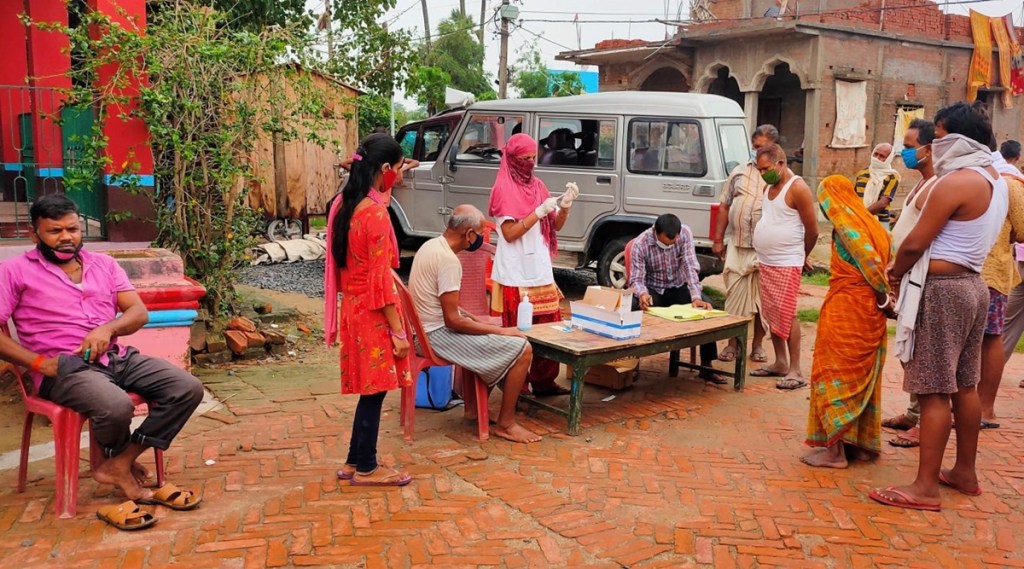By Poonam Muttreja and PD Rai
The Union Budget 2022-23 has not taken cognizance of the needs of the poor and middle class despite compelling evidence of widening inequalities which have been exacerbated due to the COVID-19 pandemic. According to the World Inequality Report 2022, India “stands out as one of the most unequal countries in the world with widespread poverty along with an affluent elite”. The Report points out that in 2021, the top 10% held 57% of the total wealth in the country while the share of the bottom 50% was just 13% in the national income in 2021.
The Oxfam India’s report on inequality finds that the richest 98 Indians own the same wealth as the bottom 552 million people. The COVID-19 pandemic has exacerbated income inequality with 84% of Indian households witnessing a decline in their incomes. The Oxfam Report also points out that the number of billionaires in the country increased from 102 to 142 during the pandemic period even as more than 4.6 crore Indians fell into extreme poverty in 2020.
This widening gap between the rich and the poor is a stark indication of the lack of pro-poor policies that aim to mitigate poverty and inequality. Evidence provided by the World Inequality Report 2022 and Oxfam India’s report on inequality should be eye-openers for all of us in India to take proactive measures that can steer the nation’s path to development. The Union Budget 2022-23 was an opportunity for the government to re-evaluate and alter its taxation measures and formulate a budget that is re-distributive and resource generative. The budget should have been more expansive in terms of ensuring adequate employment opportunities and social safety nets for the poor.
The continuing lower allocations to the Mahatma Gandhi National Rural Employment Guarantee Act (MGNREGA), nutrition, health, education and other social security benefits in the Union Budget 2022-23 are worrying. This is certainly going to adversely affect human development and related outcomes. The MGNREGA budget remains largely unchanged from last year’s allocation of Rs. 73,000 crores despite the Revised Estimates for 2021-22 going up by Rs. 98,000 crores. Similarly, the allocations for nutrition under the Saksham Anganwadi, also known as Poshan 2.0, is Rs. 20,263.07 crores, up marginally by 0.8% over the previous financial year. The budget for the protection and empowerment of women has increased by 2.4% over the last year’s budget. Not enough has been spent to bridge the digital divide in education, with expenditure declining by 35% since the last year. Even the basic needs of the poor and marginalized sections of society, like access to food, shelter, education, health, employment opportunities, do not seem to be a budgetary priority.
The government seems to have adopted a “trickle-down” approach — hoping that the increasing wealth of the richest will gradually benefit the poorest. Sadly, as reports on inequality in India are testifying, this is not happening in our country.
India needs inclusive growth that cuts across all social groups. Economic growth alone is not enough. The quality of growth needs to improve by ensuring an equitable expansion of opportunities. The government needs to mobilize additional revenues and step up investments for the poor. Jan Sarokar, a national policy advocacy group, has suggested a wealth tax and an inheritance tax on the richest 1% of the population. It has calculated that a 2% wealth tax, and a 33% inheritance tax on the richest would fetch an estimated ₹11 lakh crore per annum, which could support basic social-sector entitlements. Recommendations like these need serious deliberation. The government must also address the serious unemployment crisis facing young people by promoting employment and creating opportunities for an increase in female labour force participation. Generation of productive employment rather than mere income redistribution will be key to combating social and financial inequality and achieving sustainable human development.
(This article is co-authored by Poonam Muttreja, Executive Director of Population Foundation of India and PD Rai, former Member of Parliament from Sikkim. Views expressed are personal and do not reflect the official position or policy of the Financial Express Online.)

